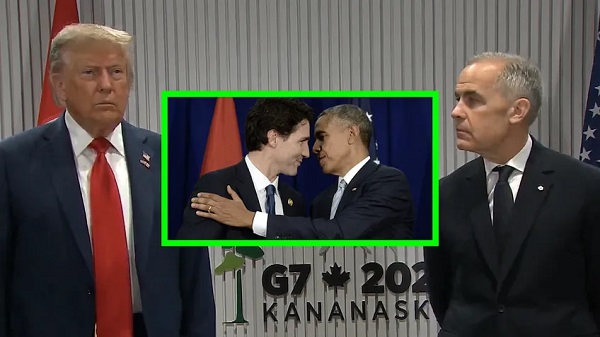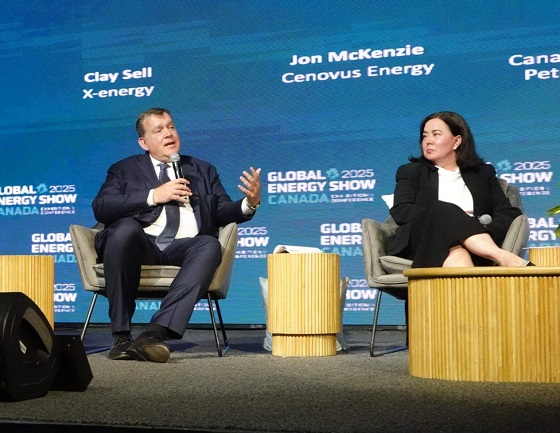International
Switzerland is No Longer Neutral

From Armstrong Economics
By Martin Armstrong
“Neutral like Switzerland” can no longer be a saying as the Swiss government has announced it is joining the European Sky Shield Initiative (ESSI) to develop a shared missile defense system across Europe. Switzerland is neither an official member of the European Union nor a member of NATO. Yet, the nation forfeited its neutrality stance years ago as Swiss leaders continued to adopt globalist rules.
The ESSI was initially proposed by Germany in 2022 amid the Russia-Ukraine war. The program will integrate with NATO’s Integrated Air and Missile Defense (IAMD) to enhance Europe’s air defenses. The powers that be know war is on the horizon, but they are betting on most of Europe continuing to fight on the same team. Armament chief Urs Loher has signed the memorandum of understanding (MoU), officially making Switzerland the 15th nation to join this coalition.
Switzerland claims that the MoU does not force it into any binding obligation as the government may choose its level of involvement. The Swiss government also claims that it may withdraw from the ESSI if any member becomes involved in a war. “With its participation in the ESSI, Switzerland is increasing international opportunities for cooperation: ESSI enables better coordination of procurement projects, training and logistical aspects in the area of ground-based air defense,” the government noted in a statement. The initial project will protect Europe against medium-range missiles, but naturally, the plan is to accelerate this technology.
Switzerland lost its tax haven status years ago when it began offering up banking information to foreign governments. Switzerland completely capitulated its historic safe-haven status to the entire world. The country was born from a tax revolt against the Hapsburg dynasty in Austria. The tax collector made William Tell to shoot an apple off his son’s head with an arrow. Switzerland then remained neutral in war and religion, serving as a safe haven for those who would be religiously persecuted. All of that is now gone.
In 2015, the Swiss Senate passed a resolution to exchange ALL information on anyone who has any assets in Switzerland. They have surrendered their sovereignty to this worldwide effort to destroy the entire global economy because politicians can never run any government efficiently.
Of the nation’s three main sectors, the tertiary sector is the most important for the Swiss economy. It includes banking, insurance, and tourism, employing more than 75% of Switzerland’s workforce. Over a fifth of the working population makes up the secondary sector, i.e. industry, trade, and crafts. The machine, metal, watch, and textile industries play a significant role, as do the chemical and pharmaceutical industries, which rely heavily on imports and exports. By far, banking was a major sector at the top of the list.
The Swiss economy was built on its banking expertise and security. That is now gone in the age of hunting cash globally. Consequently, the economy of Switzerland lost its primary competitive advantage economically. Now it must develop industries that are competitive globally. It needs more than chocolate and Rolex watches.
Yet, we saw over COVID how tyrannical the Swiss government has become though countless regulations and threats to imprison any dissenters. They even outlawed singing in public in the name of COVID simply to see how far they push the masses. It comes as no surprise as the nation is part of the globalist agenda for the Great Reset and Agenda 2030. They toyed with the idea of imprisoning citizens for heating their homes in the name of climate change, as one example. Swiss authorities have utterly change the demographics of their country by permitting mass migration as the population surpassed 9 million for the first time in history.
Then, the Swiss government was eager to aid Europe’s proxy war in Ukraine and placed sanctions on Russia. “Russia’s military aggression against Ukraine is a serious violation of the most fundamental norms of international law and is without precedent in recent European history. Within the scope of its political room for manoeuvre, the Federal Council took this into account in its decision to join the EU sanctions,” the government stated. Is that neutrality? If someone loaded your enemy’s gun, would you consider that person to be neutral?
Switzerland continues to claim neutrality. “Neutrality is not set in stone; on the contrary, it is an instrument of foreign, security and also economic policy that must be adapted to the prevailing political climate. The Federal Council has in the past regularly examined and adapted its understanding of neutrality; for example, it did so through the neutrality report of 1993. The war in Ukraine is challenging the existing international and, above all, European security order,” states the Federal Department of Foreign Affairs (FDFA).
Russia already sees that Switzerland is aligned with the West and rejected the nation’s offer to mediate peace talks in 2022. Switzerland has managed to maintain neutrality for 500 YEARS. The globalist neocons who infiltrated all government cabinets have compromised Switzerland and are stripping it of everything that once made it a great nation.
Daily Caller
‘Not Held Hostage Anymore’: Economist Explains How America Benefits If Trump Gets Oil And Gas Expansion


From the Daily Caller News Foundation
Economist Steve Moore appeared on Fox Business Tuesday to discuss what he called the significance of expanding domestic oil and gas production in the United States.
President Donald Trump’s Executive Order 14154 aims to secure U.S. energy independence and global leadership by awarding 10-year oil and gas leases. During an appearance on “The Bottom Line,” Moore said that if Trump’s energy policies succeed then America will no longer have to rely on foreign oil.
“If Trump goes forward with what he wants to do, and our energy secretary is all in on this, produce as much oil and gas as we can here at home in Texas and North Dakota and Oklahoma and these other states. Then we’re not held hostage anymore to what’s happening in the Middle East,” Moore said. “That’s what’s so frustrating. We have more of this stuff than anybody does.”
WATCH:
Moore then pointed to some of former President Joe Biden’s early decisions, particularly the cancellation of pipelines. Moore said these actions left the U.S. vulnerable to external energy crises.
“I don’t want to overemphasize the Strategic Petroleum Reserve. It’s good that we have this sort of safety knot in case you have some kind of blow up in the Middle East, like we have now. But, ultimately, what Joe Biden did was the most sinister of all,” Moore said. “You guys remember what was the first thing when he became president? He canceled pipelines. He destroyed our energy infrastructure.”
During his first term, Trump signed executive orders to advance major pipelines, including instructing TransCanada to resubmit its application for a cross-border permit for the Keystone XL Pipeline, which is designed to transport oil from the tar sands of Alberta, Canada to refineries on the Gulf Coast. On his first day in office, Biden revoked the permit for the Keystone XL Pipeline, effectively halting its development.
Business
Trump makes impact on G7 before he makes his exit

Trump Rips Into Obama and Trudeau at G7 for a “Very Big Mistake” on Russia
At the G7 in Canada, President Trump didn’t just speak—he delivered a headline-making indictment.
Standing alongside Canada’s Prime Minister, he directly blasted Barack Obama and Justin Trudeau, accusing them of committing a “very big mistake” by booting Russia out of the G8. He warned that this move didn’t deter conflict—it unleashed it, and he insists it paved the way for the war in Ukraine.
Before the working sessions began, the two leaders fielded questions. The first topic: the ongoing trade negotiations between the U.S. and Canada. Trump didn’t hesitate to point out that the issue wasn’t personal—it was philosophical.
“It’s not so much holding up. I think we have different concepts,” Trump said. “I have a tariff concept, Mark [Carney] has a different concept, which is something that some people like.”
He made it clear that he prefers a more straightforward approach. “I’ve always been a tariff person. It’s simple, it’s easy, it’s precise and it just goes very quickly.”
Carney, he added, favors a more intricate framework—“also very good,” Trump said. The goal now, according to Trump, is to examine both strategies and find a path forward. “We’re going to look at both and we’re going to come out with something hopefully.”
When asked whether a deal could be finalized in a matter of days or weeks, Trump didn’t overpromise, but he left the door open. “It’s achievable but both parties have to agree.”
Then the conversation took an unexpected turn.
Standing next to Canada’s Prime Minister, whose predecessor helped lead that push, Trump argued that isolating Moscow may have backfired. “The G7 used to be the G8,” he said, pointing to the moment Russia was kicked out.
He didn’t hold back. “Barack Obama and a person named Trudeau didn’t want to have Russia in, and I would say that was a mistake because I think you wouldn’t have a war right now if you had Russia in.”
This wasn’t just a jab at past leaders. Trump was drawing a direct line from that decision to the war in Ukraine. According to him, expelling Russia took away any real chance at diplomacy before things spiraled.
“They threw Russia out, which I claimed was a very big mistake even though I wasn’t in politics then, I was loud about it.” For Trump, diplomacy doesn’t mean agreement—it means keeping adversaries close enough to negotiate.
“It was a mistake in that you spent so much time talking about Russia, but he’s no longer at the table. It makes life more complicated. You wouldn’t have had the war.”
Then he made it personal. Trump compared two timelines—one with him in office, and one without. “You wouldn’t have a war right now if Trump were president four years ago,” he said. “But it didn’t work out that way.”
Before reporters could even process Trump’s comments on Russia, he shifted gears again—this time turning to Iran.
Asked whether there had been any signs that Tehran wanted to step back from confrontation, Trump didn’t hesitate. “Yeah,” he said. “They’d like to talk.”
The admission was short but revealing. For the first time publicly, Trump confirmed that Iran had signaled interest in easing tensions. But he made it clear they may have waited too long.
“They should have done that before,” he said, referencing a missed 60-day negotiation window. “On the 61st day I said we don’t have a deal.”
Even so, he acknowledged that both sides remain under pressure. “They have to make a deal and it’s painful for both parties but I would say Iran is not winning this war.”
Then came the warning, delivered with unmistakable urgency. “They should talk and they should talk IMMEDIATELY before it’s too late.”
Eventually, the conversation turned back to domestic issues: specifically, immigration and crime.
He confirmed he’s directing ICE to focus its efforts on sanctuary cities, which he accused of protecting violent criminals for political purposes.
He pointed directly at major Democrat-led cities, saying the worst problems are concentrated in deep blue urban centers. “I look at New York, I look at Chicago. I mean you got a really bad governor in Chicago and a bad mayor, but the governor is probably the worst in the country, Pritzker.”
And he didn’t stop there. “I look at how that city has been overrun by criminals and New York and L.A., look at L.A. Those people weren’t from L.A. They weren’t from California most of those people. Many of those people.”
According to Trump, the crime surge isn’t just a local failure—it’s a direct consequence of what he called a border catastrophe under President Biden. “Biden allowed 21 million people to come into our country. Of that, vast numbers of those people were murderers, killers, people from gangs, people from jails. They emptied their jails into the U.S. Most of those people are in the cities.”
“All blue cities. All Democrat-run cities.”
He closed with a vow—one aimed squarely at the ballot box. Trump said he’ll do everything in his power to stop Democrats from using illegal immigration to influence elections.
“They think they’re going to use them to vote. It’s not going to happen.”
Just as the press corps seemed ready for more, Prime Minister Carney stepped in.
The momentum had clearly shifted toward Trump, and Carney recognized it. With a calm smile and hands slightly raised, he moved to wrap things up.
“If you don’t mind, I’m going to exercise my role, if you will, as the G7 Chair,” he said. “Since we have a few more minutes with the president and his team. And then we actually have to start the meeting to address these big issues, so…”
Trump didn’t object. He didn’t have to.
By then, the damage (or the impact) had already been done. He had steered the conversation, dropped one headline after another, and reshaped the narrative before the summit even began.
By the time Carney tried to regain control, it was already too late.
Wherever Trump goes, he doesn’t just attend the event—he becomes the event.
Thanks for reading! This post took time and care to put together, and we did our best to give this story the coverage it deserved.
If you like my work and want to support me and my team and help keep this page going strong, the most powerful thing you can do is sign up for the email list and become a paid subscriber.
Your monthly subscription goes further than you think. Thank you so much for your support.
This story was made possible with the help of Overton —I couldn’t have done it without him.
If you’d like to support his growing network, consider subscribing for the month or the year. Your support helps him expand his team and cover more stories like this one.
We both truly appreciate your support!
-

 Health1 day ago
Health1 day agoLast day and last chance to win this dream home! Support the 2025 Red Deer Hospital Lottery before midnight!
-

 conflict2 days ago
conflict2 days ago“Evacuate”: Netanyahu Warns Tehran as Israel Expands Strikes on Iran’s Military Command
-

 Aristotle Foundation2 days ago
Aristotle Foundation2 days agoThe Canadian Medical Association’s inexplicable stance on pediatric gender medicine
-

 Energy2 days ago
Energy2 days agoCould the G7 Summit in Alberta be a historic moment for Canadian energy?
-

 Bruce Dowbiggin2 days ago
Bruce Dowbiggin2 days agoWOKE NBA Stars Seems Natural For CDN Advertisers. Why Won’t They Bite?
-

 Crime2 days ago
Crime2 days agoMinnesota shooter arrested after 48-hour manhunt
-

 Alberta1 day ago
Alberta1 day agoAlberta announces citizens will have to pay for their COVID shots
-

 Uncategorized1 day ago
Uncategorized1 day agoKananaskis G7 meeting the right setting for U.S. and Canada to reassert energy ties











